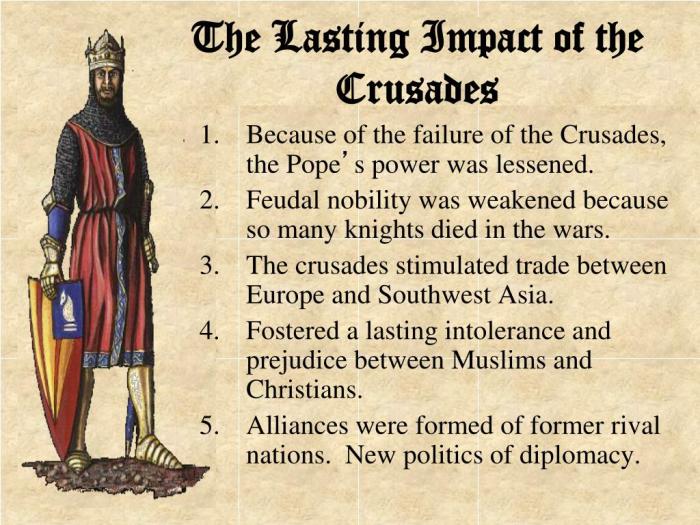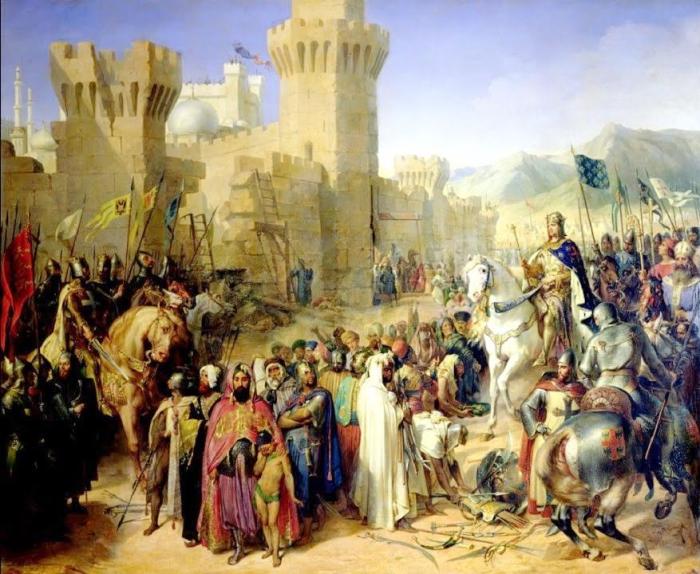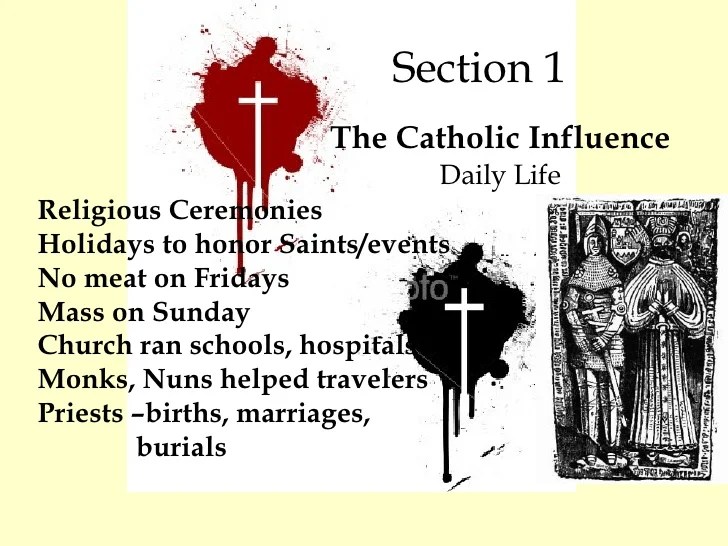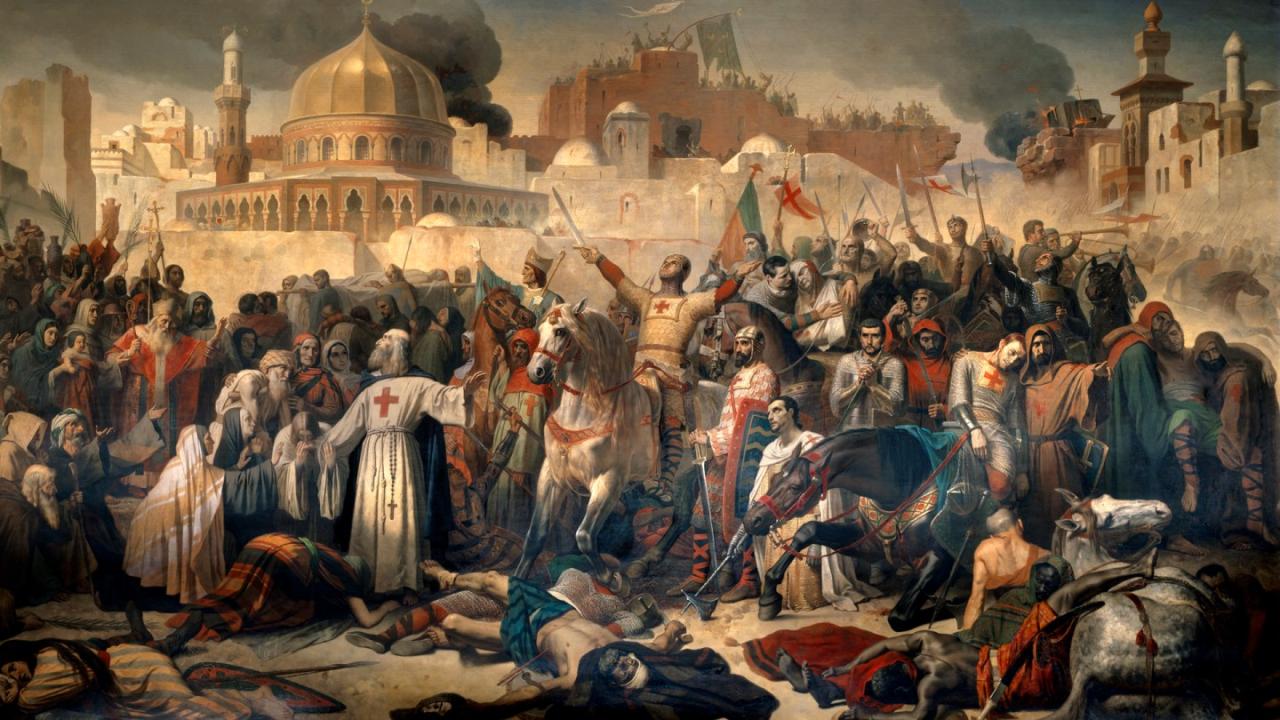Embark on an exploration of the church and the crusades quick check, a historical inquiry that delves into the motivations, organization, and impact of the Crusades from the perspective of the Church. This quick check provides a comprehensive overview of the topic, examining the role of religious leaders, the influence on the Church’s authority, and the lasting legacy of these holy wars.
The Role of the Church in the Crusades: The Church And The Crusades Quick Check

The Church played a pivotal role in initiating and supporting the Crusades. Religious motivations, such as the desire to liberate the Holy Land from Muslim control and secure the safety of Christian pilgrims, were central to the Church’s involvement. Pope Urban II’s speech at the Council of Clermont in 1095 sparked the First Crusade, appealing to the religious fervor and sense of duty among the faithful.
Organization and Funding
The Church organized the Crusades through its network of bishops and priests, who rallied support and recruited soldiers. It also provided financial backing, levying taxes on the faithful and using its vast wealth to fund military expeditions. Additionally, the Church established religious orders, such as the Knights Templar and the Knights Hospitaller, to support the Crusades and provide medical care and protection for pilgrims.
Influence of Religious Leaders
Religious leaders played a significant role in the conduct of the Crusades. Popes and bishops often accompanied the armies, offering spiritual guidance and motivating the troops. They also exerted influence on the decisions made by Crusader leaders, shaping the strategies and tactics employed during the campaigns.
The Impact of the Crusades on the Church

The Crusades had both positive and negative effects on the Church’s authority and prestige. On the one hand, the Crusades reinforced the Church’s role as a leader in the Christian world, solidifying its political and religious power. The success of the First Crusade, in particular, bolstered the papacy’s authority and influence.
Growth of Papal Power
The Crusades contributed to the growth of papal power by providing the popes with a new source of authority and legitimacy. By leading the Crusades, the popes established themselves as protectors of the faith and defenders of Christendom. This enhanced their influence over both secular rulers and the faithful.
Relationship with Secular Rulers
The Crusades also influenced the relationship between the Church and secular rulers. While the Church had often been subordinate to kings and emperors in the past, the Crusades created a new dynamic. The Church’s leadership role in the Crusades gave it greater autonomy and influence, challenging the authority of secular rulers in some cases.
The Legacy of the Crusades for the Church

The Crusades had a long-term impact on the Church’s relationship with other religions and its understanding of its role in the world. The conflicts between Christians and Muslims during the Crusades created a lasting legacy of distrust and hostility, shaping the Church’s approach to interfaith dialogue and diplomacy.
Relationship with Other Religions
The Crusades damaged the Church’s relationship with other religions, particularly Islam. The violence and brutality associated with the Crusades left a deep scar on Muslim-Christian relations, creating a divide that persists in some ways today. The Church’s justification of violence in the name of religion also raised questions about its commitment to peace and tolerance.
Understanding of its Role
The Crusades also influenced the Church’s understanding of its role in the world. The experience of the Crusades led to a shift in focus from spiritual to temporal matters. The Church became more involved in political and military affairs, seeking to assert its influence and protect its interests.
Continuing Influence, The church and the crusades quick check
The legacy of the Crusades continues to influence the Church today. The conflicts and tensions between Christians and Muslims in the Middle East, in part, have their roots in the Crusades. The Church’s ongoing efforts to promote interfaith dialogue and understanding are also shaped by the lessons learned from the Crusades.
FAQ Resource
What were the primary motivations for the Church to initiate and support the Crusades?
The Church’s motivations were multifaceted, including the desire to liberate the Holy Land from Muslim control, protect Christian pilgrims, and spread Christianity.
How did the Church organize and fund the Crusades?
The Church played a central role in organizing and funding the Crusades through papal decrees, preaching campaigns, and the establishment of military orders.
What was the impact of the Crusades on the Church’s authority and prestige?
The Crusades had both positive and negative effects on the Church’s authority. While they initially bolstered the Church’s prestige, they also led to criticism and a decline in papal power.
